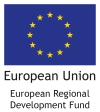Ten of our projects end this spring – what are their results?
Monday, February 5, 2018 - 10:07
Last year we got to celebrate the ending of our first projects, such as Let Us Be Active!, EDU-SMEs and EmpowerKids. Also, our Interrreg Volunteer Sofia wrote a short summary about the project results from 2017.
During the spring of 2018, ten more projects will end with the total number of finished projects being 40 by the end of the year. We will keep a close eye on our ending projects and the results they are producing around the programme region. Below is a short summary of some of the main planned results for the projects ending in spring. The get a better overview of project activities and a complete set of planned results, head over to the project database (all project names are links to the database).
Edit: Our project FinEst Link held its final seminar on 7 February. Even though the project will end by August, it has been added to this list under priority 3.
Priority 1 – Competitive economy
SPARKS – Cross-border cooperation between Finnish and Estonian start-ups and potential entrepreneurs is improved. Joint or cooperating companies are created and supported through early phases of start-up life-cycle. Project ends by March 2018.
Springboard – Business acceleration programs, coaching and B2B matchmaking supports the creation of increased capacity to produce international startups in the Central Baltic region. The project has ended in January.
Priority 2 – Sustainable use of common resources
Live Baltic Campus – Creation of integrated campus plans as well as service concepts and implementation plans in cooperation with city governments and stakeholders. Project ends by April 2018.
Priority 3 - Well-connected region
MASAPO – Pilot small ports in Estonian and Åland islands have tight cooperation with local voluntary maritime rescue organisations and basic safety quality sign as well as safety services have been improved. Project ends by April 2018.
FinEst Link - The project results, include projections for different scenarios according to which the passenger transport demand is going to increase steadily in the next three decades. The demand will peak in 2050 with 23 million passenger crossing the sea-borders between Finland and Estonia, if the tunnel project will be realised and with 14 million passenger if the tunnel is not realised. Regarding cargo transport, the estimation is for 8 million tons of cargo with tunnel and 7 million tons without. The tunnel is expected to reduce the trasportation time between Tallinn and Helsinki to only 30 minutes.
A video that summarises the results: https://www.youtube.com/watch?v=OmZsqMq5mXw
Summary of results in a PDF file: http://www.finestlink.fi/wp-content/uploads/2018/02/final-conference-handout.pdf
Priority 4 – Skilled and socially inclusive region
Active Age – New skills acquired through training activities help long-term unemployed seniors to meet the needs of local public and private sector in Setomaa region in Estonia and the Engure and Ape regions in Latvia. Project ends by March 2018.
ACUCARE – an e-course helps students and practitioners to work and develop skills between different countries in the field of child welfare and child protection. Project ends by March 2018.
CROSS – Integration of long-term unemployed immigrants in Estonia and Estonian immigrants in Finland by learning about needs, sharing best-practices and peer-support. Project ends by June 2018.
DeDiWe – Digital health and welfare services are improved by creating a curriculum in Finnish, Estonian and Latvian that allows students to learn together in real working life. Project ends by April 2018.
FEM – Through data collection, peer groups and walk-in info points, Estonian migrant women in Finland will be better integrated in the local community. Project ends by April 2018.
Youth-Sport-Vol – Develops a cross-border sports model for the young unemployed and an ICT-based platform to support this. Project was ended in January.
During the spring of 2018, ten more projects will end with the total number of finished projects being 40 by the end of the year. We will keep a close eye on our ending projects and the results they are producing around the programme region. Below is a short summary of some of the main planned results for the projects ending in spring. The get a better overview of project activities and a complete set of planned results, head over to the project database (all project names are links to the database).
Edit: Our project FinEst Link held its final seminar on 7 February. Even though the project will end by August, it has been added to this list under priority 3.
Priority 1 – Competitive economy
SPARKS – Cross-border cooperation between Finnish and Estonian start-ups and potential entrepreneurs is improved. Joint or cooperating companies are created and supported through early phases of start-up life-cycle. Project ends by March 2018.
Springboard – Business acceleration programs, coaching and B2B matchmaking supports the creation of increased capacity to produce international startups in the Central Baltic region. The project has ended in January.
Priority 2 – Sustainable use of common resources
Live Baltic Campus – Creation of integrated campus plans as well as service concepts and implementation plans in cooperation with city governments and stakeholders. Project ends by April 2018.
Priority 3 - Well-connected region
MASAPO – Pilot small ports in Estonian and Åland islands have tight cooperation with local voluntary maritime rescue organisations and basic safety quality sign as well as safety services have been improved. Project ends by April 2018.
FinEst Link - The project results, include projections for different scenarios according to which the passenger transport demand is going to increase steadily in the next three decades. The demand will peak in 2050 with 23 million passenger crossing the sea-borders between Finland and Estonia, if the tunnel project will be realised and with 14 million passenger if the tunnel is not realised. Regarding cargo transport, the estimation is for 8 million tons of cargo with tunnel and 7 million tons without. The tunnel is expected to reduce the trasportation time between Tallinn and Helsinki to only 30 minutes.
A video that summarises the results: https://www.youtube.com/watch?v=OmZsqMq5mXw
Summary of results in a PDF file: http://www.finestlink.fi/wp-content/uploads/2018/02/final-conference-handout.pdf
Priority 4 – Skilled and socially inclusive region
Active Age – New skills acquired through training activities help long-term unemployed seniors to meet the needs of local public and private sector in Setomaa region in Estonia and the Engure and Ape regions in Latvia. Project ends by March 2018.
ACUCARE – an e-course helps students and practitioners to work and develop skills between different countries in the field of child welfare and child protection. Project ends by March 2018.
CROSS – Integration of long-term unemployed immigrants in Estonia and Estonian immigrants in Finland by learning about needs, sharing best-practices and peer-support. Project ends by June 2018.
DeDiWe – Digital health and welfare services are improved by creating a curriculum in Finnish, Estonian and Latvian that allows students to learn together in real working life. Project ends by April 2018.
FEM – Through data collection, peer groups and walk-in info points, Estonian migrant women in Finland will be better integrated in the local community. Project ends by April 2018.
Youth-Sport-Vol – Develops a cross-border sports model for the young unemployed and an ICT-based platform to support this. Project was ended in January.



